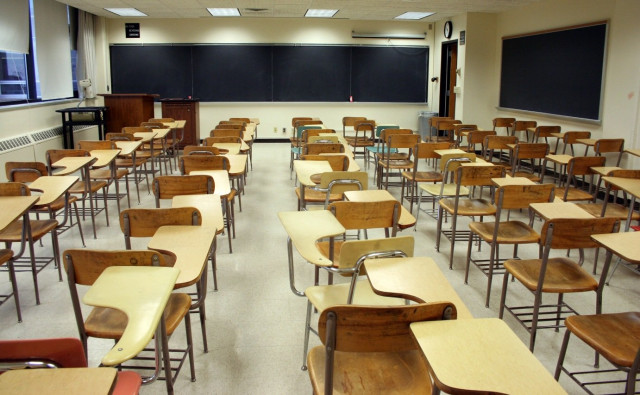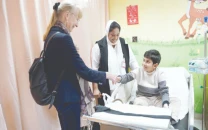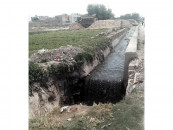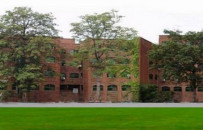Improving schools: Parties agree on education reform
Four-point consensus includes need-based budgets, timely release of funds and implementing Article 25-A.

Political party representatives reached agreement on Wednesday on a four-point agenda to improve the effectiveness of education spending.
The agenda was agreed after the Institute of Social and Policy Sciences (ISAPS) shared its findings at a roundtable titled Education Reforms and Financing: Election 2013 and Post-Election Agenda. The roundtable was held in collaboration with the UK’s Department for International Development (DFID).
The agenda include: the allocation of funds based on need, keeping block grants at less than 25 per cent, the timely release and spending of funds, and compliance with Article 25-A (right to free education for all) of the Constitution in the next three to four years.
ISAPS had pointed to the dearth of data-based budgetary allocations in its findings.
“Only 20 per cent of funds for missing facilities are based on data,” said ISAPS executive director Dr Salman Humayun.
He said around 25 per cent of spending on model school schemes and 6 per cent of the school upgrade programme was based on data. He said the Danish Schools programme posed questions regarding the transparency of allocations.
Dr Humayun said almost Rs2 billion had been taken from the School Education budget last year to fund the laptop scheme.
He said teacher and student attendance increases where there is greater monitoring. He said block allocations were showing an alarming rise. “In 1999, only nine percent of funds were block allocations. Block allocations increased by almost 90 per cent near election years, including 2007, 2011 and 2012,” he said. “Ideally there should be no block allocations…but they can be brought down to at least 25 per cent,” he said.
Lack of coordination between the Finance, Planning and Development and Education Departments resulted in the lapse of funds, he said.
Party representatives
Chaudhry Zaheeruddin of the PML-Q demanded that development funds be released in a timely fashion. “Development is not the work of the legislators - it should be handed down to district governments to ensure transparency,” he said. He also criticised the rationale for Danish Schools. “If they are built for the lower middle class, why does the Danish School in Rahim Yar Khan have parking area for over 100 cars,” he said.
“While the ISAPS findings are alarming, it does not mean that the government lacks good intentions,” said Chaudhry Javed Ahmed of the PML-N, who chairs the provincial assembly’s Standing Committee on Education.
He proposed ‘flexible schooling’ as the solution to implementing Article 25-A. Allowing multiple school sessions in the same day would allows maximise utility of existing infrastructure, he said.
Ahmed defended development work done on political grounds, stating “this does not mean it didn’t merit budgetary allocation”.
PML-N MPA Rana Afzal Khan said it was normal for allocations in an election year to have political hues. “This happens everywhere, including the US,” he said.
PPP representatives said it was vital data on budget releases be made public. MPA Ehsanul Haq said the Punjab government seemed to have learnt from its mistake as it had not released funds for Danish schools in the last two years. MPA Tariq Amin Hotyana said funds should be allocated based on data. “Block allocations are why a nest of flyovers is being built in Lahore,” he said.
ANP General Secretary Ehsan Wayne said the Danish Schools scheme was socially divisive. He said the ANP, if elected, would spend six per cent of GDP on education instead of the current 1.6 to 1.7 per cent.
The Punjab government’s good governance was appreciated, but its financial failures cannot be forgiven, said Zikrullah Mujahid of the Jamaat-i-Islami. He said the PML-N had failed to build consensus on education policy.
“While the government takes pride passing Article 25-A, the ground reality reflects that there are still millions of children out of school,” said Waleed Iqbal of the PTI. He said education governance should be decentralised. He said the PTI would allocate five per cent of GDP for education, were it elected.
“The gravest issues we face in education are transparent accountability and good governance,” said PML-Functional MPA Dr Asma Mamdot.
She agreed development funds should be spent at the district level.
Published in The Express Tribune, December 20th, 2012.



















COMMENTS
Comments are moderated and generally will be posted if they are on-topic and not abusive.
For more information, please see our Comments FAQ